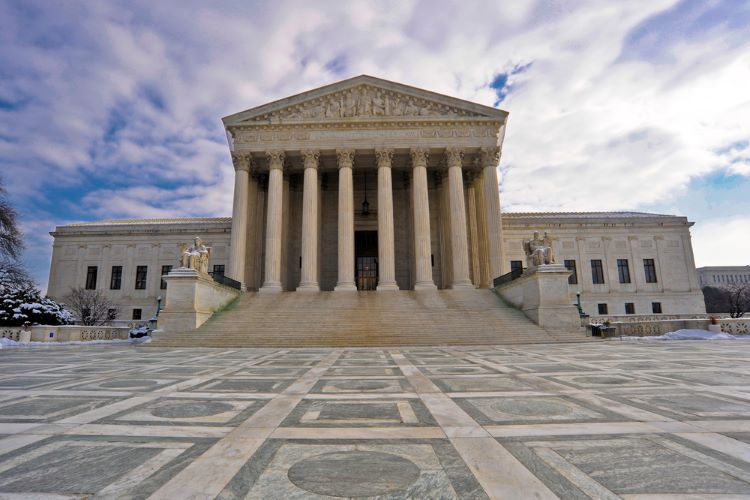Supreme Court won’t hear lawyer’s challenge to anti-bias ethics rule
U.S. Supreme Court
Supreme Court won’t hear lawyer’s challenge to anti-bias ethics rule
April 24, 2024, 10:16 am CDT
The U.S. Supreme Court on Monday denied certiorari in a challenge to a Pennsylvania ethics rule that bars lawyers from knowingly engaging in conduct that constitutes discrimination and harassment in the practice of law. (Image from Shutterstock)
The U.S. Supreme Court on Monday denied certiorari in a challenge to a Pennsylvania ethics rule that bars lawyers from knowingly engaging in conduct that constitutes discrimination and harassment in the practice of law.
The high court declined to hear the case brought by Pennsylvania lawyer Zachary Greenberg, who argued that the ethics rule violated the First Amendment and was unconstitutionally vague.
Reuters has the story.
The Pennsylvania rule, as amended during the litigation, states that it is professional misconduct for a lawyer to, in the practice of law, knowingly engage in conduct constituting harassment or discrimination based on race, sex, gender identity or expression, religion, national origin, ethnicity, disability, age, sexual orientation, marital status or socioeconomic status.
A commentary to the rule defines “harassment” as “conduct that is intended to intimidate, denigrate or show hostility or aversion toward a person.”
Greenberg had argued that he feared that his continuing legal education seminars could be interpreted as harassment or discrimination under the ethics rule. Greenberg’s CLE seminars quoted offensive language from judicial opinions and discussed arguably controversial topics.
The 3rd U.S. Circuit Court of Appeals at Philadelphia had ruled in August that the ethics rule does not generally prevent Greenberg from quoting offensive words or expressing controversial opinions in his presentations. As a result, the appeals court said, Greenberg lacked standing.
The Pennsylvania rule is similar but not identical to Rule 8.4(g) of the ABA Model Rules of Professional Conduct, the ABA said in an amicus brief filed with the appeals court.
Greenberg was represented by Adam Schulman of the Hamilton Lincoln Law Institute. Schulman told Reuters that he was disappointed that the Supreme Court declined to hear the case, but he was pleased that the ethics rule was narrowed during litigation.
“We’re prepared to be back in court if Pennsylvania backslides or if any other state tries this,” Schulman told Reuters.
The case is Greenberg v. Lehocky.


![[Podcast] Artificial Intelligence: Risks and Rewards | BakerHostetler [Podcast] Artificial Intelligence: Risks and Rewards | BakerHostetler](https://jdsupra-static.s3.amazonaws.com/profile-images/og.14750_4752.jpg)



